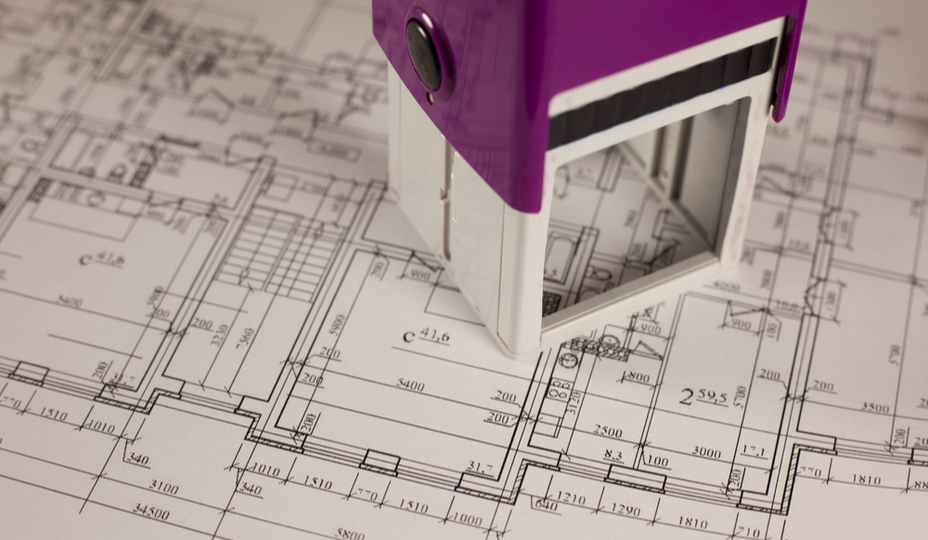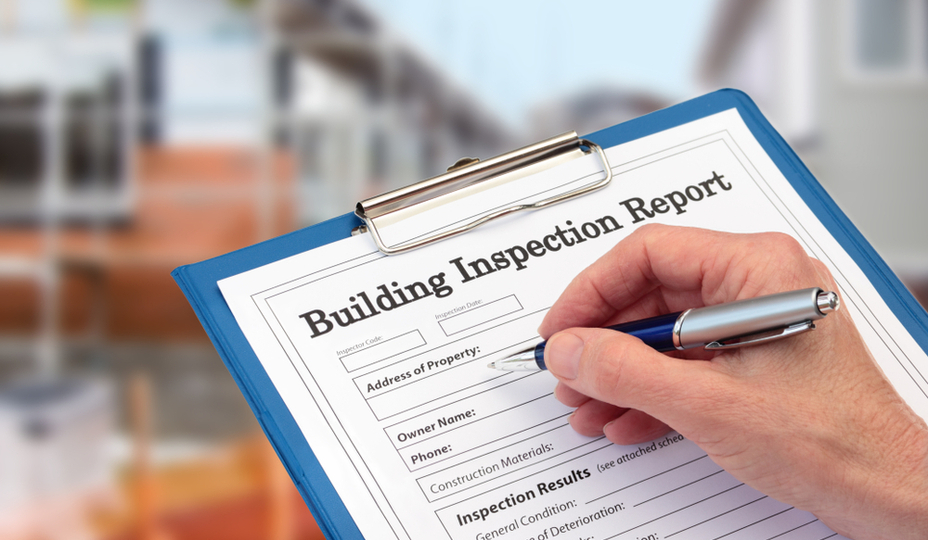
While there are many steps to a renovation that can seem overwhelming, understanding building permits is one that can bring up a lot of questions for any homeowner. As experts in renovation projects, our Renovation Advisors have come up with the most important things you should be asking yourself before applying for a building permit in Ontario.
Does my renovation project require a permit?
Under the Ontario Building Code, most renovation projects require a permit of some kind to be done. Permits are important because they help ensure that any construction being done is in compliance with the OBC, as well as municipal by-laws on urban/commercial planning and development.
Here are a few examples of what will require a permit:
- Addition, repairs or renovations of livable space over 10 m²
- Addition, repairs or renovations of space requiring plumbing
- Repairs or installation or drains/sewage
- Foundation work
Additionally, here are some examples of common projects that do not require a permit:
- Installation or building of a shed (no plumbing, less than 10 m²)
- Deck (height can vary my municipality)
- Repair or installation of a fence (exception: fencing around a pool)
If you’re uncertain what permit or documentation you need, contact your city planning office, and they will be able to guide you in the application process. In certain municipalities, you can find handy checklists to see what bylaws your project might need to follow. In the case of Markham, it’s considered a required document to submit when applying for a permit, so it helps make sure you’re applying for the right permits.

How much does a building permit cost?
The fees associated with a building permit vary from one municipality to another, and from one project to another. Some are based on a rate per square meter of the construction area, while other can cost a flat rate for the project as a whole. To give you an idea, below are 4 common types of permits, and their respective cost, for 5 cities in the Greater Toronto Area. There is also additional fees that can be added per project, for city damage deposits, demolition, environmental impact, inspections, plan certifications, etc.
Here are the costs you can expect for residential renovations in the Greater Toronto Area:
| Detached, semi, townhouse, duplex (new construction) | Addition (heated) | Basement (finishings) | Plumbing/Draining components | |
| Toronto | $17.16 / m² | $17.16* / m² | $4.93 / m² | $198.59 (flat rate) |
| Mississauga | $16.94 / m² | $12.45 / m² | $5.04 / m² | $38.00 / fixture |
| Vaughan | $15.36* / m² | $13.72 / m² | $4.79 / m² | $160.00 (flat rate) |
| Oakville | $17.15 / m² | $17.95 / m² | $4.70 / m² | $39.00 / fixture |
| Pickering | $13.00 / m² | $13.00 / m² | $5.00 / m² | $130.00 (flat rate) |
*with exceptions
Where do I get a building permit?
As most regulations, restrictions and rules around urban planning under the Ontario Building Code are the responsibility of municipalities to enforce, applying for a building permit must be done with the Planning Office of your city. Many large municipalities in the GTA allow for electronic applications, where you can easily submit all the necessary forms, drawings, documents, reports, specifications, calculations and plans for your permit application, by email or through a secure portal.
A few examples of cities that allow electronic applications are:
Certain projects, or even all projects in certain municipalities will require going in person to the Planning Office to submit the documents for your application.
Examples of municipalities that require applications submitted in person, at the municipal Planning Office:
- Vaughan
- Ajax
- Pickering
- Brampton

How long does it take to get a building permit?
The timeline for getting a building permit, from the moment you apply until you can begin your project, can vary greatly. The general approval process can vary from one municipality to the next, but the biggest factor that influences the timeline is the type of project. The type and scope of the project influences the by-laws that must be followed, as well as the documentation required to support that all regulations are being respected – and all this influences the time it takes for your city to approve your application request.
For example, the city of Mississauga provides the following estimates for the most common types of permits applied for:
- New Residential – 11 weeks (detached, semi)
- Residential Alterations – 5 weeks (detached, semi)
- New Non -residential – 15 weeks
- Non-residential alteration – 7 weeks
- Second Units – 9 weeks
- Zoning Certificate – 5 weeks
While you can’t control the length of the review process for your project, you can help ensure it goes as quickly as possible by ensuring you’ve submitted all the correct documents you need for your application. As mentioned, the more complex the project, the more documentation you will need, so it’s important to take the time to double-check your application before submitting it. Your city will be able to provide you the exact list of what is needed, either on their website, or by contacting them at the city planning office. If you are missing any plans, drawings, or forms from your application, there will be an additional delay while you resubmit the required documents.
Who is responsible for the permit – me or my contractor?
As the owner of the home being renovated, you are entirely and solely responsible for the building permits required for your project. This includes applying for them, ensuring they’re the right ones for your project, paying the fees, etc. While you can task your contractor with applying for the permits for you, you are still responsible for them.
This also applies in cases where your municipality requires a deposit based on their by-laws. In Toronto, for example, a Municipal Road Damage Deposit Permit is required for renovations that may cause damage to the city’s property (curb, sidewalk, road, etc). This deposit is the responsibility of the homeowner to pay, and will be reimbursed to the owner if no damage is done. If any damages are done to city property, however, it will be up to the homeowner to settle the matter with their own contractor. Of course, any good-quality contractor will have insurance to cover such damages, and will not be an issue to arrange repayment. To ensure you work with a licensed and insured contractor, contact one of our Renovation Advisors and learn about how to get quotes from up to three Verified Contractors today!
What happens if I proceed with my project without a permit?
Loss of Time
While getting a permit may seem like a bigger headache than it’s worth, the consequences of doing unpermitted renovation work are far worse. The most obvious consequence of such an infraction is that you will have to immediately stop all work in progress. Because various stages of a project can require inspections (based on your permits/type of project), you will not be able to start again until the correct permits are approved and applied, and the work already done has been inspected. This delay can vary depending on the scope of work, but it will be at least the time of the permit approval process. It may also mean that you have to undo or redo work that has already been done, costing you more money.

Loss of Money
Another consequence of beginning a renovation without the correct permit is a fine from your city. As previously mentioned, the homeowner is responsible for building permits, so even if your contractor says a permit is not required for a certain type of project, you are still responsible for paying the penalty fee. Under the Building Code Act of 1992, an individual can be fined up to $50,000 for doing a renovation project without a building permit. In the city of Toronto, the “work without permit” penalty is an additional fee equal to 50% of the permit fees for the project, on top of having to pay the standard building permit fees.
The financial consequences for this don’t stop there, unfortunately. If you’re lucky, and you don’t get caught during the renovation process, there can still be problems later on. If you choose to sell your house, for example, a potential homeowner can ask to see the permits for the work that has been done, or pursue you in court afterwards if it is not disclosed during the sale. This can affect your ability to sell your house, or negatively impact the price you will get for it. Think of it this way — if you purchased a home, discovered unpermitted renovations had been done, and were saddled with paying to have it redone, you would certainly not be happy!
The Ontario Building Code applies to everyone, even cities. In 2016, the city of Guelph fined itself for not acquiring the required building permits for a community centre that was built!
Ready to start your renovation project?
Navigating which permits you need can be a hassle, but luckily, at RenoAssistance, our Renovation Advisors have the experience to be able to match you with the best contractors for your project. Their expertise will help you have peace of mind that you are working with a contractor with the knowledge to get the permits needed. If you’re looking to begin a renovation project, Call us or fill out our form, and a Renovation Advisor will be happy to assist! We can find you up to 3 quotes from our Verified Contractors, help you decide which quote is best for you, and advise you all throughout the renovation process — all at no charge, no obligation to you!
Also read

Should I Renovate Right Now? Thoughts From Canadian Homeowners

Navigating Condos: Private, Common, and Exclusive Use Areas

Bills 141 and 16: Impact on Condo Life

Cost of Home Adaptations for Reduced Mobility

Major renovation: where to start?

A Retrofitting Boost: Supporting your Renovation with the Canada Greener Homes Grant

Building a House: Floor Plans and Types of Construction

Architect vs. Architectural Technologist: Which Should You Choose?

Preparing Your Home for Winter: What to Check

Who to Hire: A General or Specialized Contractor?





